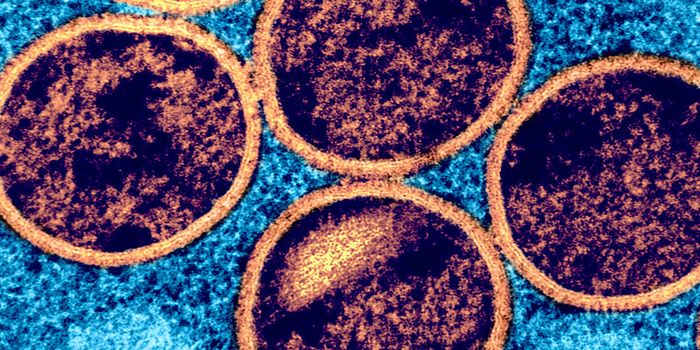Lupus Flares are Connected to a Gut Microbe
There is a large microbial community that lives in the human gut, and that community has been connected to a wide variety of disorders. As scientists learn more about the gut microbiome, they’re finding that it can influence the health of its host through bacterial gene expression, changes in the way that the microbes take up nutrients, or how the gut lining is impacted, for example. That lining is closely related to our immune system, and problems in the immune system can cause many diseases, such as arthritis. New work has indicated that systemic lupus erythematosus (SLE), another immune disorder, is associated with a bacterium found in the human gut. The research has been reported in the Annals of Rheumatic Diseases.
SLE or lupus is characterized by flares of joint pain, fatigue, and rash, and can impair several organs including the kidneys. The causes are unclear, although genetics may play a role. It impacts around 1.5 million people in the US and is more common in women.
This study found that 61 women with SLE carried about five times as much of a gut bacterium called Ruminococcus gnavus compared to seventeen healthy women of similar races and ages. The team also found that flares of the disease tracked with increases in R. gnavus levels in the gut. In the blood, antibodies for the bacterium were similarly increased. In patients with kidney flares, there were particularly high levels of R. gnavus antibodies.
"Our study strongly suggests that in some patients bacterial imbalances may be driving lupus and its associated disease flares," said the senior investigator of the study, immunologist Gregg Silverman, MD. "Our results also point to leakages of bacteria from the gut as a possible immune system trigger of the disease, and suggest that the internal gut environment may, therefore, play a more critical role than genetics in renal flares of this all too often fatal disease.”
Silverman who is a professor in the departments of Medicine and Pathology at NYU Langone Health, suspects that R. gnavus antibodies trigger the immune system to launch a "continuous and unrelenting" attack on organs. He suggested that a blood test could be used in the future to track antibody levels even in the early stages of the disease. Current methods used for testing are inconclusive and unreliable, especially at early stages, he noted.
More work will be needed on a larger group of patients to confirm these findings, Silverman cautioned. This research could help shift treatment approaches for the disorder, however. It’s possible that future treatment efforts would focus on altering the microbiome to prevent the growth of R. gnavus and stop flares. Fecal transplants pr probiotics may also be useful. Hundreds of bacteria compose the human gut microbiome, and one microbe, Bacteroides uniformis, is thought to impede R. gnavus growth.
Researchers will be learning more about these and other microbes in the years to come. One day, probiotics might be an important part of disease therapeutics for lupus and other disorders.
Sources: AAAS/Eurekalert! Via NYU Langone Health/ NYU School of Medicine, Annals of Rheumatic Diseases








